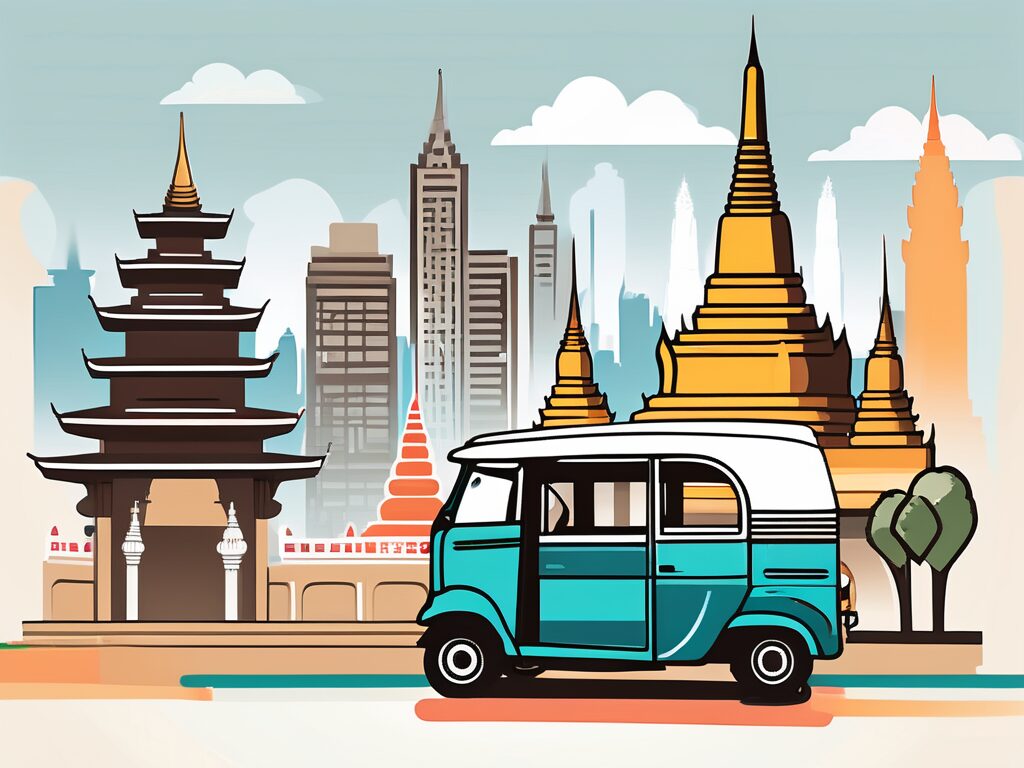Bangkok, the vibrant capital city of Thailand, is a melting pot of cultures, traditions, and languages. This diversity is reflected in its educational institutions, where intercultural education is increasingly becoming a focus area. Intercultural education seeks to foster understanding, respect, and collaboration among students from different cultural backgrounds. It’s a bit like preparing a Thai green curry, where each ingredient retains its unique flavour, yet contributes to a harmonious and delicious whole.
Understanding Intercultural Education
Before we delve into the specifics of intercultural education in Bangkok, let’s first understand what this term means. In essence, intercultural education is a pedagogical approach that encourages students to appreciate and respect cultural diversity. It’s akin to a buffet spread at a Thai restaurant, where each dish represents a different culture, and the goal is to savour and appreciate each one.
Intercultural education aims to equip students with the skills and knowledge to interact effectively with people from different cultural backgrounds. It’s not just about learning different languages or studying various cultures. It’s about fostering empathy, understanding, and mutual respect, much like how the Thais respect the ‘wai’, a traditional form of greeting.
Focus Areas of Intercultural Education in Bangkok
Now that we have a basic understanding of intercultural education, let’s explore its focus areas in Bangkok’s educational institutions. These can be broadly categorised into curriculum development, teacher training, and student engagement.
Curriculum Development
The first step towards promoting intercultural education is to incorporate it into the curriculum. In Bangkok, many schools are revising their syllabi to include topics that promote cultural diversity and understanding. It’s a bit like adding a new dish to the menu at a Thai restaurant – it requires careful planning, preparation, and execution.
For instance, some schools have introduced subjects like ‘World Cultures’ and ‘Global Citizenship’ to expose students to different cultures and traditions. Others have incorporated cultural exchange programmes and field trips to cultural sites to provide students with first-hand experience of different cultures.
Teacher Training
Teachers play a pivotal role in promoting intercultural education. In Bangkok, many educational institutions are investing in teacher training programmes to equip educators with the skills and knowledge to foster intercultural understanding among students. It’s akin to training a chef to prepare a variety of dishes from different cuisines.
These training programmes focus on developing teachers’ intercultural competence, which includes understanding their own cultural biases, developing empathy towards other cultures, and using culturally sensitive teaching methods. Some schools also encourage teachers to participate in cultural exchange programmes to broaden their cultural horizons.
Student Engagement
The final focus area of intercultural education in Bangkok is student engagement. Schools are organising various activities to engage students in intercultural learning. Think of it as a cultural fair, where students can explore different cultures, much like visiting different stalls at a Thai market.
These activities include cultural exchange programmes, international day celebrations, and cultural workshops. Schools also encourage students to participate in community service projects in culturally diverse neighbourhoods to foster empathy and understanding.
The Impact of Intercultural Education in Bangkok
Intercultural education is making a significant impact in Bangkok. It’s helping to foster a culture of respect and understanding among students from different cultural backgrounds. It’s a bit like a Thai silk weaving process, where different threads are interwoven to create a beautiful and cohesive fabric.
Students are not only learning about different cultures but also developing skills like empathy, communication, and conflict resolution. They are becoming more open-minded and respectful towards cultural differences. This is preparing them for a globalised world where they will interact with people from diverse cultural backgrounds.
Teachers, too, are benefiting from intercultural education. They are becoming more culturally competent and sensitive, which is enhancing their teaching effectiveness. They are also developing a deeper understanding of their students’ cultural backgrounds, which is helping them to tailor their teaching methods to meet the diverse needs of their students.
In conclusion, intercultural education is playing a crucial role in promoting cultural diversity and understanding in Bangkok. It’s like a bridge connecting different cultures, fostering mutual respect and collaboration. As Bangkok continues to evolve as a multicultural city, the importance of intercultural education will only increase.
Elevate Your Teaching Career with IPGCE
As Bangkok thrives on its cultural diversity, the demand for educators who are adept in intercultural competence is soaring. If you’re an educator aiming to enhance your qualifications, overcome the barriers of international school requirements, and advance your career, the International Postgraduate Certificate in Education (iPGCE) is your bridge to success. With the iPGCE, you can expect to join the ranks of teachers who experience increased interview callbacks, promotion rates, and salary increments. Embrace the opportunity to connect with a global professional community, gain a profound understanding of international curricula, and pursue professional development without compromising your current commitments. Join the UK’s #1 Teacher Training Course today and become a pivotal part of the intercultural educational landscape in Bangkok and beyond.

